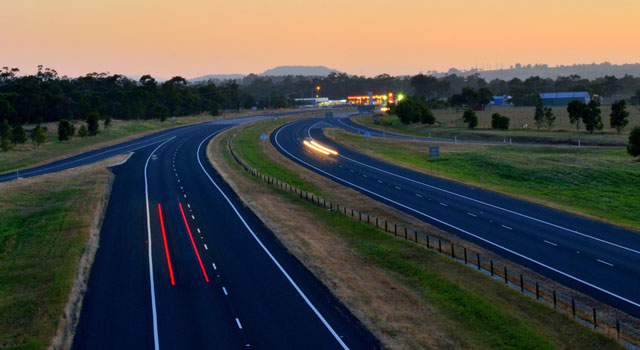
The long-awaited electronic tolling system on Gauteng’s highways was expected to go live at midnight on Monday.
This follows several years of delays due to court challenges and a public outcry.
On Monday, an application by the Freedom Front Plus to stop e-tolls on Gauteng highways was struck from the roll by the high court in Pretoria on Monday.
“The matter is scrapped from the roll for lack of urgency,” said judge Maria Jansen. She said the applicant sought wide-reaching relief, and failed to make a proper case.
Jansen said the constitutional issues related to the case were complicated, and it had implications for the separation of powers.
Afterwards, Freedom Front Plus spokesman Anton Alberts said the merits of the case had not been heard. “We are very disappointed. The merits of the case were not heard today. The matter is not necessarily dead.”
Alberts said the party would decide on a way forward. A likely option was to put the matter up for review, which could take a few months.
Alberts said the court ruling was not in the public interest.
Below is the timeline of events leading up to the day Gauteng motorists will start paying.
- 8 October 2007 — Gauteng Freeway Improvement Project (GFIP) is officially launched.
- 12 October 2007 — Intention to toll sections of Gauteng’s freeways published in Government Gazette. Public asked to comment.
- 14 November 2007 — Closing date for public comment on the proposed introduction of e-tolls.
- 28 March 2008 — Sections of Gauteng freeways declared toll roads in Government Gazette.
- 26 June 2008 — Construction of the first phase of the GFIP commences.
- June 2010 — Roads agency Sanral starts erecting toll gantries along Gauteng’s freeways.
- 4 February 2011 — Sanral announces e-toll tariffs and that registration commences in the second quarter of 2011.
- 18 February 2011 — Trade union federation Cosatu announces it will call for strike action over the introduction of e-tolls.
- 22 February 2011 — The then transport minister Sibusiso Ndebele suspends implementation of e-tolls and establishes a committee to address concerns about the tariffs.
- March 2011 — Public consultation process on e-tolls takes place.
- June 2011 — GFIP steering committee announces reduced e-toll tariffs following the public consultation process.
- 10 August 2011 — Cabinet approves the revised tariffs for e-tolls.
- 23 October 2011 — Ndebele orders that e-tolls be halted and that further consultation take place.
- November 2011 — Public hearings held on e-tolls.
- 22 February 2012 — In his budget speech, finance minister Pravin Gordhan announces that e-tolls will go ahead at reduced rate in April of that year.
- March 2012 — Opposition to Urban Tolling Alliance (Outa) applies for an urgent interdict in the high court in Pretoria against the implementation of e-tolls.
- 29 April 2012 — The court grants Outa an interim interdict pending a full judicial review.
- 22 March 2012 — Treasury files an appeal against the interim interdict in the constitutional court.
- 15 August 2012 — Case is heard in the constitutional court.
- 20 September 2012 — Constitutional Court sets aside the temporary interdict.
- 13 December 2012 — After the full judicial review, the high court in Pretoria rules against Outa in its application to have the implementation of e-tolls set aside.
- 25 January 2013 — High court in Pretoria grants Outa leave to appeal to the supreme court of appeal (SCA) against the December ruling.
- 25 September 2013 — Outa appeal is heard at the SCA.
- 9 October 2013 — Outa loses its appeal at the SCA.
- 20 November 2013 — Transport minister Dipuo Peters announces e-tolls will go live on 3 December.
- 26 November 2013 — Sanral warns that a hefty bill awaits non-registered motorists without e-toll accounts who fail to pay for e-tolls within a week. The Freedom Front Plus announces a last-minute attempt to stop the implementation of e-tolls through an application for an interdict in the high court in Pretoria.
- 2 December 2013 — FF Plus application is heard in court. — Sapa




